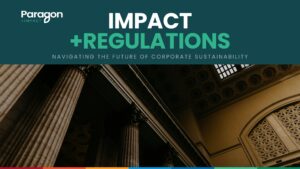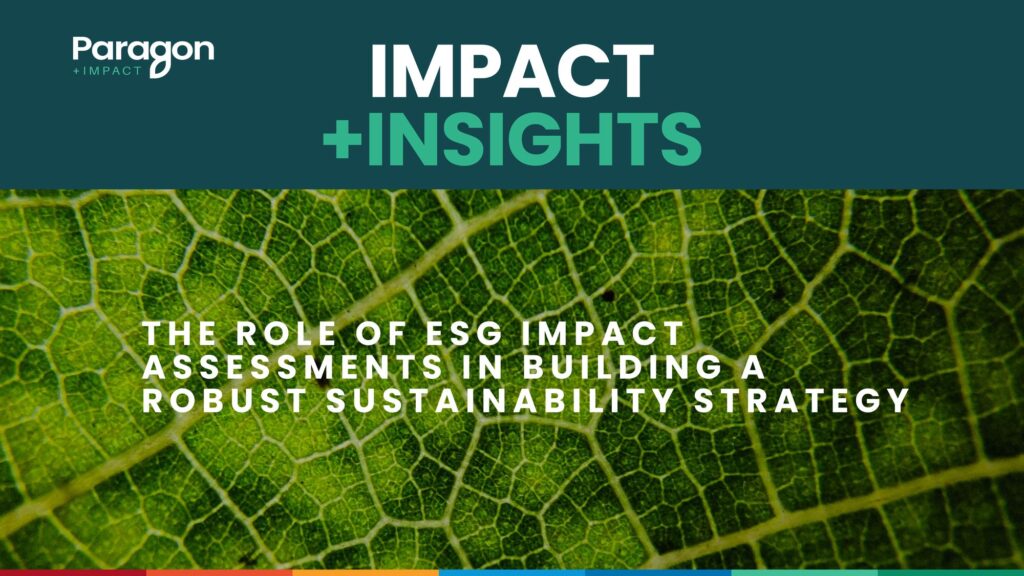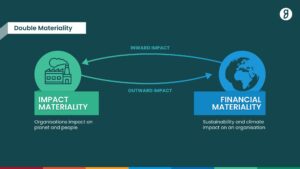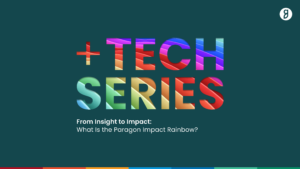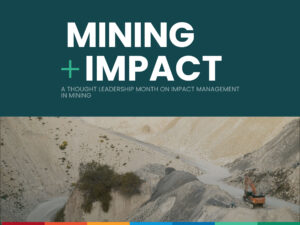As sustainability no longer remains a choice but a necessity, organisations are beginning to navigate the complex web of their environmental, social, and governance (ESG) impacts. In order to carve out a robust sustainability strategy and drive meaningful change using this process, the starting point is clear: a sustainability or ESG impact assessment.
In the context of my work as a Chief Impact Analyst, an impact assessment serves as a diagnostic tool for our clients. It offers us a detailed snapshot of an organisation’s positive and negative impacts on the environment and society — including a thorough overview of its governance practices.
You might wonder, how does an impact assessment inform your org’s sustainability strategy?
There are several reasons why.
Impact assessments are invaluable for several reasons:
Establishes A Baseline
Firstly, a sustainability impact assessment establishes a baseline. By understanding where an organisation stands in terms of its ESG performance, leaders and stakeholders can identify strengths and weaknesses, as well as areas requiring urgent attention.
This baseline is not just a starting point — it’s the foundation upon which all future sustainability efforts can be built.
Informs Strategic, High-level Decisions
Armed with baseline data, the decision-makers in your organisation can make informed strategic decisions. You can prioritise actions that address the most significant impacts, allocate resources more effectively, and set realistic and achievable goals. This targeted approach ensures that sustainability initiatives are both impactful and efficient, reducing cost contingencies along the way.
Enhances Transparency and Accountability
Impact assessments also enhance transparency and accountability. At a time where stakeholders – including customers, investors, and regulators – are demanding greater accountability, having concrete data to back up sustainability claims is crucial. Transparent impact reporting helps build trust with your stakeholders and demonstrates a genuine commitment to sustainability.
Drives Continuous Improvement
Furthermore, these assessments provide an opportunity for continuous improvement. Sustainability is not a one-time achievement; but an ongoing journey. Regular impact assessments allows your organisation to track progress, adjust strategies, and continually raise the bar. This iterative process fosters a culture of continuous improvement and resilience.
Crafting an Effective Sustainability Strategy Using Impact Assessments
Once the baseline has been established, the next step is crafting an effective sustainability strategy. This strategy should ideally be:
- Priority-Driven:
It is impossible to do everything at once. Aspects determined as most material to an organization should be prioritised.
- Data-Driven:
Grounded in the insights from the impact assessment, ensuring actions are targeted and impactful.
- Holistic:
Addressing all three pillars of sustainability – environmental, social, and governance – to create balanced and integrated solutions.
- Dynamic:
Capable of evolving in response to new data, emerging trends, and stakeholder feedback.
- Transparent:
Communicating goals, actions, and progress openly to build trust and accountability.
Case in Point: Paragon’s Approach to Impact Assessments
At Paragon Impact, we’ve integrated sustainability impact assessments into the core of our operations. Our innovative digital Impact Management & SDG Grading Platform assesses the impacts of various entities against the Sustainable Development Goals (SDGs) — providing clear metrics, granular data and actionable insights. We utilise multiple frameworks and reporting standards, including GRI, SASB, ESRS, to name a few.
This approach empowers organisations to manage their ESG risks, achieve their impact goals, and contribute to global Agenda 2030.
Summing Up
Reflecting on my work, I recognise the importance of standardised, transparent assessments.
Sustainability and ESG impact assessments are invaluable tools for organisations aiming to develop robust sustainability strategies and future-proofing your operations for climate risks.
By establishing a baseline, informing strategic decisions, enhancing transparency, and continuous iterations, these assessments lay the groundwork for the sustainable growth of your organisation.
Want to conduct a comprehensive impact assessment for your company, portfolio or organisation?
Book a free demo of the Paragon Impact Management & SDG Grading System here. Or reach out to me at kieren@paragonimpact.com.
